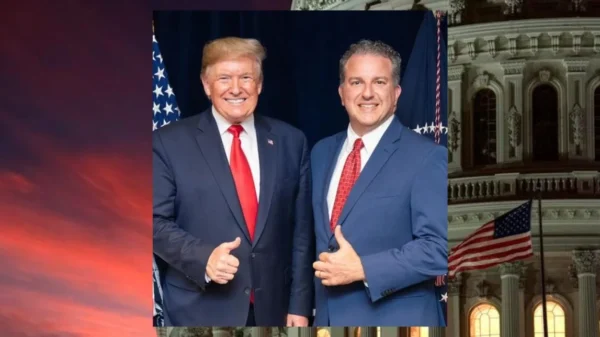This week, Florida Chief Financial Officer (CFO) Jimmy Patronis weighed in on the Federal Communications Commission’s (FCC) order to phone companies to block robocalls about scam auto warranties.
In February, Patronis issued a letter to the chairwoman of the FCC to express concern regarding robocalls and urge the agency to require all cellphone carriers to provide free spam blocking services to all customers. The CFO also supported legislation this year, signed into law by Gov. Ron DeSantis, to crack down on unwanted telemarketing calls in Florida.
“As Florida’s CFO, I’ve been engaging with federal regulators to put an end to robocall scams that have targeted Floridians for far too long, causing millions of dollars in fraud,” Patronis said. “While I’m thankful that the FCC is taking action to curb this unscrupulous business practice, it will take time to implement these vital changes and consumers should stay on guard. Most major mobile phone carriers offer spam blocking apps to protect their customers. I encourage consumers to contact their carrier immediately and find out what app is available to you.
“More needs to be done to stop scam robocalls and I will continue to encourage mobile carriers operating in Florida to wave all fees for scam call blocking services. Consumer protection is my priority and I look forward to continuing to work with stakeholders to protect families and businesses from obnoxious robocalls that aren’t just a nuisance – they are outright fraud,” he added.
Patronis shared the FCC’s tops to “Stop Unwanted Robocalls and Avoid Phone Scams” which are below:
• Don’t answer calls from unknown numbers. If you answer such a call, hang up immediately.
• You may not be able to tell right away if an incoming call is spoofed. Be aware: Caller ID showing a “local” number does not necessarily mean it is a local caller.
• If you answer the phone and the caller – or a recording – asks you to hit a button to stop getting the calls, you should just hang up. Scammers often use this trick to identify potential targets.
• Do not respond to any questions, especially those that can be answered with “Yes.”
• Never give out personal information such as account numbers, Social Security numbers, mother’s maiden names, passwords or other identifying information in response to unexpected calls or if you are at all suspicious.
• If you get an inquiry from someone who says they represent a company or a government agency, hang up and call the phone number on your account statement, in the phone book, or on the company’s or government agency’s website to verify the authenticity of the request. You will usually get a written statement in the mail before you get a phone call from a legitimate source, particularly if the caller is asking for a payment.
• Use caution if you are being pressured for information immediately.
• If you have a voicemail account with your phone service, be sure to set a password for it. Some voicemail services are preset to allow access if you call in from your own phone number. A hacker could spoof your home phone number and gain access to your voicemail if you do not set a password.
• Talk to your phone company about call blocking tools they may have and check into apps that you can download to your mobile device to block unwanted calls.
• If you use robocall-blocking technology already, it often helps to let that company know which numbers are producing unwanted calls so they can help block those calls for you and others.
• To block telemarketing calls, register your number on the Do Not Call List. Legitimate telemarketers consult the list to avoid calling both landline and wireless phone numbers on the list.


















